Siviwe Gwarube, Basic Education Minister, has failed to meet her 31 March 2025 deadline to eradicate all remaining pit toilets at public schools. Speaking at Mavhunga Primary School, in Louis Trichardt, Limpopo on Friday, 4 April, Gwarube said the Department of Basic Education (DBE) had managed to eradicate 96% of pit toilets.
“It is my duty to announce that of the pit toilets identified in the Safe Initiative’s 2018 audit, as of 31 March 2025, we have eradicated 96%. […] While we have come incredibly far, the fact remains that 141 of the schools identified under the Safe Initiative still have unsafe toilets.
‘However, I take comfort in the fact that 90 out of the 141 will be completed in April, May and June. Therefore by July 2025, we will be over 98% completion rate and we will be within touching distance of 100% eradication of the Safe Initiative backlog,’ Gwarube said.
Provinces with pit toilets
The Eastern Cape led the tally with 96 schools left with pit toilets after 1,439 schools with pit latrines were identified in the 2018 audit. KwaZulu Natal follows with 45 schools with pit toilets, down from 1,254 pit toilets. Limpopo only has one school left with pit toilets. Provinces that achieved a 100% eradication rate were North West, which had 72 schools with pit latrines, Mpumalanga (111) and Free State (105). The 2018 audit identified no pit toilets in Gauteng, Northern Cape and Western Cape.
The figures indicate that pupils at many schools still face unsafe sanitation, leaving them exposed to dangers that could be fatal.
Reasons for not completing the task
Explaining the reasons for the department’s delay in addressing the pit toilet backlog, Gwarube said: “The reasons for delays on the other projects include inclement weather, with various parts of the Eastern Cape and KZN experiencing heavy rains leading to flooding and rural roads being washed away. This makes certain villages inaccessible to contractors.”
She added that sites also fell victim to the construction mafia, which has wreaked havoc in both private and public sector sites across the country, with workers having had to be pulled off the sites for safety reasons. “The programme has also had several instances of poor contractor performance, which lead us to terminate their contracts as part of consequence management.”
Read more: Gwarube says 93% of pit toilets have been eradicated in race to beat 31 March deadline
Thousands of South African children still risk their lives using unsafe pit latrines at school, despite years of government promises to eradicate them. Missed deadlines and tragic deaths have been part of the ongoing struggle to provide safe, dignified sanitation.
Decades after the dismantling of apartheid in 1994, the legacy of racial segregation continues to cast a dark shadow over South Africa’s education system. In 2014, the South African Human Rights Commission (SAHRC) issued a damning report on the appalling sanitation problems, stating: “those areas which lack water and sanitation mirror apartheid spatial geography”.
The report highlighted the wide-ranging impact of learners’ lack of access to sanitation, asserting that it affected other fundamental rights, “including rights to dignity, education, health, safety and the environment”.
Policies in place, but progress delayed
While the Department of Basic Education (DBE) sets standards and offers support, the responsibility for implementation lies with provincial governments, which have not consistently met their obligations.
The South African Schools Act mandates all schools to provide access to sufficient water and hygiene facilities and prohibits the use of pit toilets. In 2013, the government set a deadline for removing all pit toilets by November 2016, yet this target was missed, and subsequent deadlines in 2020 and 2023 were also unmet.
The norms and standards for school infrastructure, which set deadlines for essential infrastructure like water, sanitation and classrooms, were reviewed in early 2024. As a result, all deadlines were removed, though the ban on pit toilets remained. Experts have criticised the removal of deadlines, arguing that without clear timelines, accountability has been significantly weakened.
In 2024, the DBE launched the Safe Schools app to facilitate public reporting and monitoring of unsafe toilets. However, the movement Equal Education, through its community leader, Kgaogelo Matlatle, expressed strong criticism of the app. Matlatle said the app was impractical for addressing sanitation challenges in rural provinces because of issues such as poor network coverage and a lack of consistent electricity — a textbook example of the government’s disconnect from the realities on the ground.
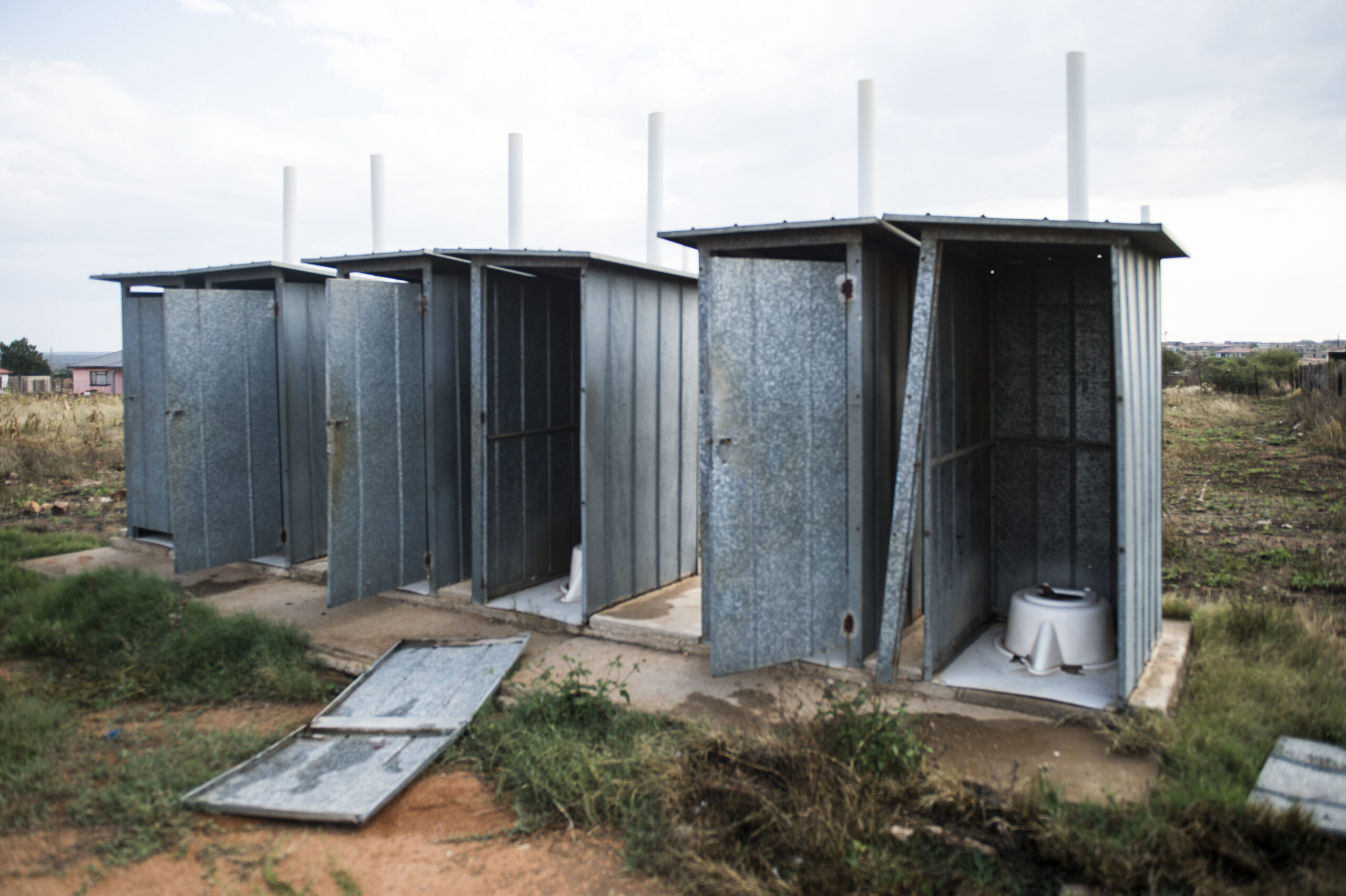 Pit toilets at Soka Leholo Primary School in Limpopo. (Delwyn Verasamy)
Pit toilets at Soka Leholo Primary School in Limpopo. (Delwyn Verasamy)
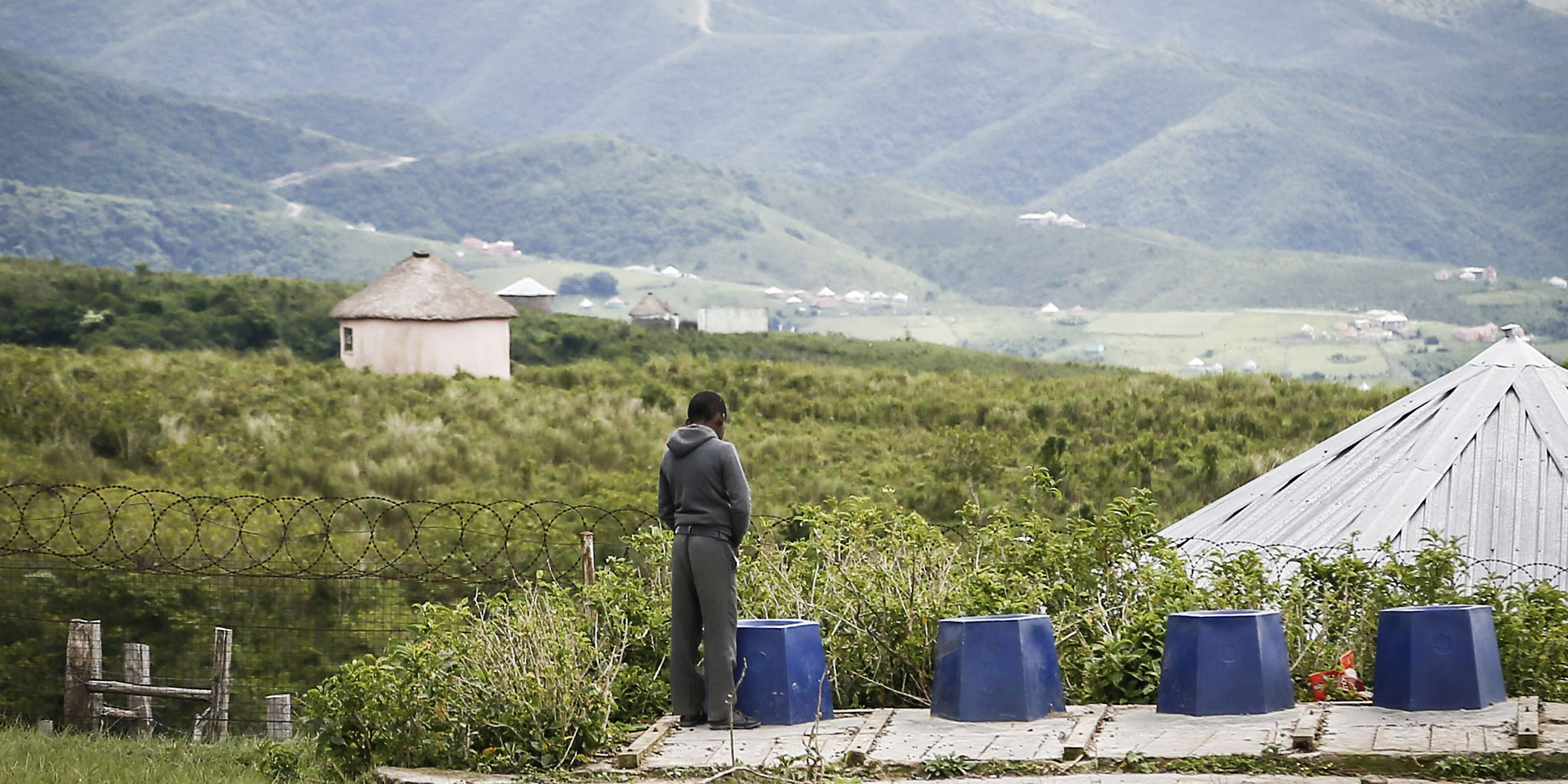 Pit toilets at Vulingcobo Junior Secondary School in Xhora in the Eastern Cape. (Photo: Felix Dlangamandla / Daily Maverick)
Pit toilets at Vulingcobo Junior Secondary School in Xhora in the Eastern Cape. (Photo: Felix Dlangamandla / Daily Maverick)
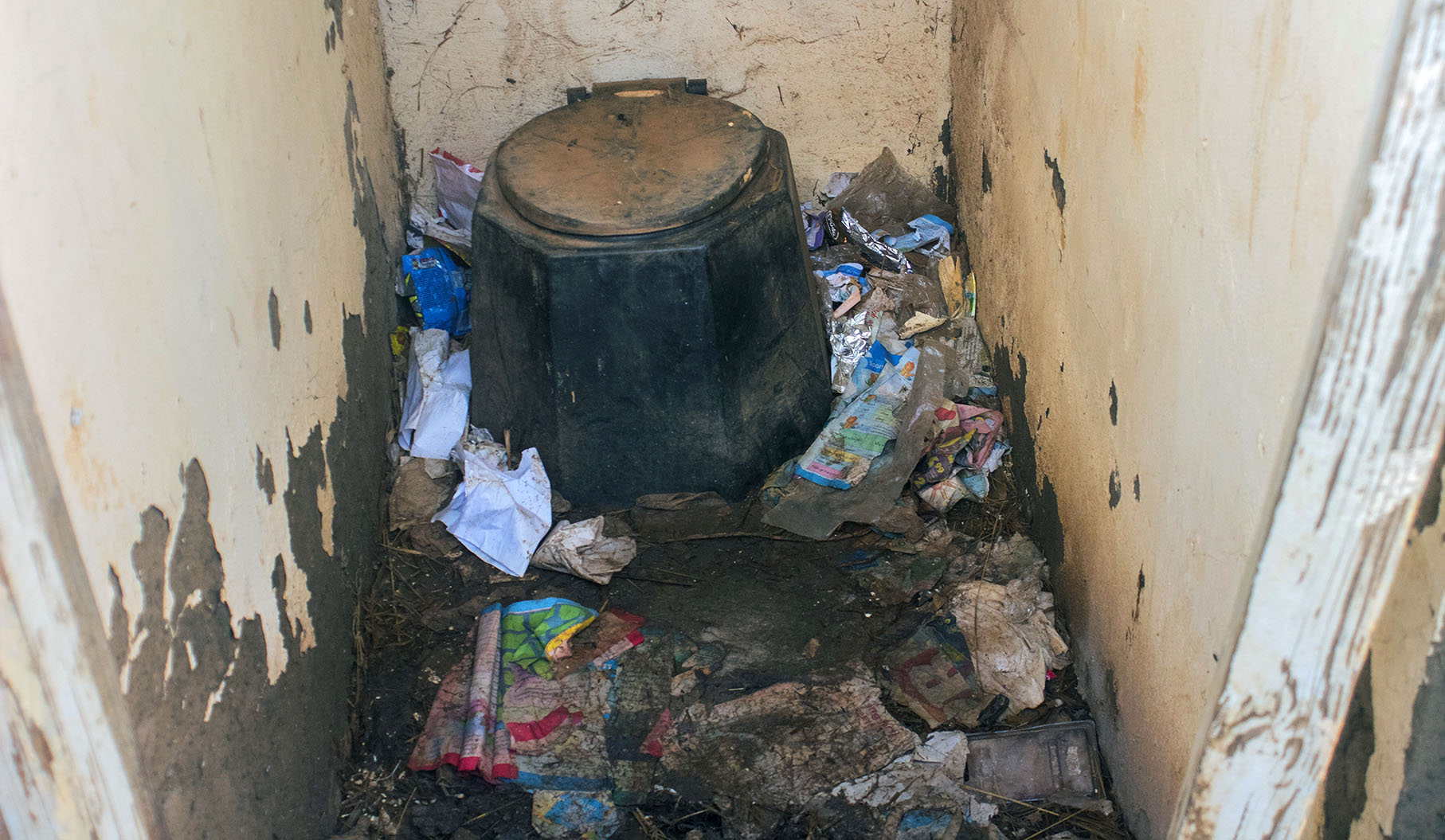 A pit toilet at Enduku Junior Secondary School in Ngcobo, Eastern Cape. (Photo: Hoseya Jubase)
A pit toilet at Enduku Junior Secondary School in Ngcobo, Eastern Cape. (Photo: Hoseya Jubase)
Last year, Gwarube set a bold deadline, with the DBE committing to eradicating all remaining pit toilets in SA school by 31 March 2025.
Read more: Here’s my promise — by 31 March 2025 all pit toilets in SA schools will be eradicated
In a media statement on Monday, 31 March, Equal Education said it was no surprise that yet another deadline to eliminate pit latrines had been missed.
 Basic Education Minister Siviwe Gwarube. (Photo: Gallo Images / Brenton Geach)
Basic Education Minister Siviwe Gwarube. (Photo: Gallo Images / Brenton Geach)
Tragic fatalities and persistent delays
The history of school sanitation in South Africa has been marred by the tragic loss of young lives due to unsafe pit toilets.
In March 2013, seven-year-old Lister Magongwa’s body was discovered after the walls of a crumbling pit toilet collapsed on him at Mmushi Primary School in Limpopo.
 (Image: Kristin-BeetleBattles / Facebook)
(Image: Kristin-BeetleBattles / Facebook)
In 2014, five-year-old Michael Komape from Chebeng village in Limpopo drowned in a broken pit latrine at his school. Michael’s death sparked national outrage and a decade-long battle to eliminate pit toilets from South African schools.
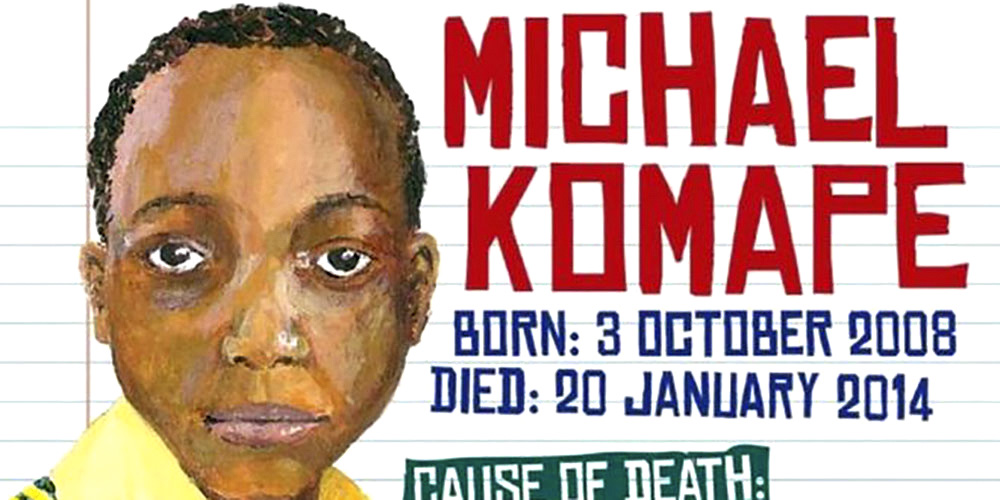 Michael Komape drowned in a pit toilet at his school in Limpopo. (Image: Supplied)
Michael Komape drowned in a pit toilet at his school in Limpopo. (Image: Supplied)
In May 2016, five-year-old Oratile Diloane fell into a pit toilet in North West. Diloane sustained severe head injuries, resulting in hypoxia and hydrocephalus, which led to his death in August 2024 at the age of 13.
 Oratile Diloane. (Photo: Supplied)
Oratile Diloane. (Photo: Supplied)
Read more: Oratile (13) tragically dies eight years after falling into ‘deathtrap’ North West school pit toilet
In 2017, six-year-old Siyamthanda Mtunu drowned in a pit toilet in the Eastern Cape. A year later, five-year-old Lumka Mketwa died in a pit latrine in the Eastern Cape. That same year, five-year-old Viwe Jali was found dead in a pit latrine at Luna Primary School in Bizana, Eastern Cape.
 (Image: Section 27/ Facebook)
(Image: Section 27/ Facebook)
In 2023, four-year-old Langalam Viki drowned in a toilet at her school in Vaalbank in the Eastern Cape.
 Langalam Viki. (Photo: Supplied)
Langalam Viki. (Photo: Supplied)
On 18 April 2024, three-year-old Unecebo Mboteni fell into a pit toilet at his crèche in Unit 6 in Mdantsane, Eastern Cape. Unecebo was taken to hospital and died the following day.
 Unecebo Mboteni. (Photo: Supplied)
Unecebo Mboteni. (Photo: Supplied)
The NPO SECTION27, representing Michael Komape’s parents, secured a 2018 Limpopo High Court ruling ordering the provincial education department to eliminate all school pit latrines.
However, the Limpopo Department of Basic Education missed its April 2024 deadline. In its November 2024 report, the department stated that 12 Priority 1 schools, still reliant on pit toilets, were in the “construction” phase, with completion expected by December 2024.
In February 2025, SECTION27 assessed the Limpopo Department of Education’s progress and raised concerns over the findings. At one school, it found just four mobile toilets serving more than 570 learners. At a primary school with 200 learners, the mobile toilets were removed without notice.
“At one school, eight mobile toilets are serving over 1,000 learners, and become full very quickly. Within days, these toilets are maggot-infested, with an unbearable stench and are only cleaned once a week during school hours. Learners are therefore continuously forced to use these unhygienic and unsanitary toilets on a regular basis, and the construction of new toilets has not begun,” said SECTION27.
Sanitation shortfall
In a response published in March to a parliamentary question by EFF MP Mandla Shikwambana, Gwarube revealed that 590 SA schools still relied on pit latrines — 340 in the Eastern Cape, 170 in KwaZulu-Natal, 77 in Limpopo and three in Mpumalanga.
The second-most common form of sanitation in South African schools is ventilated improved pit (VIP) latrines, used in 8,684 schools. The Eastern Cape leads with 3,237 schools using VIP latrines, followed by KwaZulu-Natal with 2,702, and Limpopo with 1,604.
In a November 2024 parliamentary committee meeting, DBE Director-General Hubert Mathanzima Mweli said VIP latrines were safe, UN-approved and hygienic. However, a February 2025 South African Human Rights Commission report raised concerns that the “improved” VIP latrines failed to meet safety standards set by the Water Research Commission.
Last month, Gwarube stated that 3,372 pit toilets were identified across schools in 2018 and 93% had been eradicated through the Sanitation Appropriate for Education (Safe) Initiative. Gwarube acknowledged that the department was facing significant budget constraints, which had hindered the repair and maintenance of infrastructure.
Civil society organisations have voiced concerns that the 2018 audit is outdated and may not have identified all schools still using pit toilets. Demichelle Petherbridge, an attorney at SECTION27, said many schools might still be operating unnoticed by the education department due to inadequate verification and updating processes. She also expressed concern over the use of mobile toilets as a temporary solution while permanent facilities are constructed in Limpopo.
Shelley Humphreys, the CEO of the NPO Save Our Schools, voiced similar concerns, stating that efforts to determine which schools were on the department’s list had been unsuccessful.
Since November last year, Save Our Schools and its partner organisations have identified 26 schools in the Eastern Cape’s Alfred Nzo District that still rely on pit toilets. Conversations with principals and teachers suggest these schools are not on any official lists.
Action is needed
The eradication of pit toilets in schools remains a crucial issue. According to Equal Education, making Grade R compulsory will deepen the crisis, adding more learners to a system already failing on sanitation.
“The failure to meet deadlines, the continued existence of dangerous sanitation, and the absence of sufficient funding are all symptoms of a broader failure of governance and planning.
“By removing the deadlines, the DBE has signalled its willingness to tolerate these conditions indefinitely, leaving learners, particularly those in rural and working-class communities, at risk. We cannot afford another unkept promise,” said Equal Education. DM




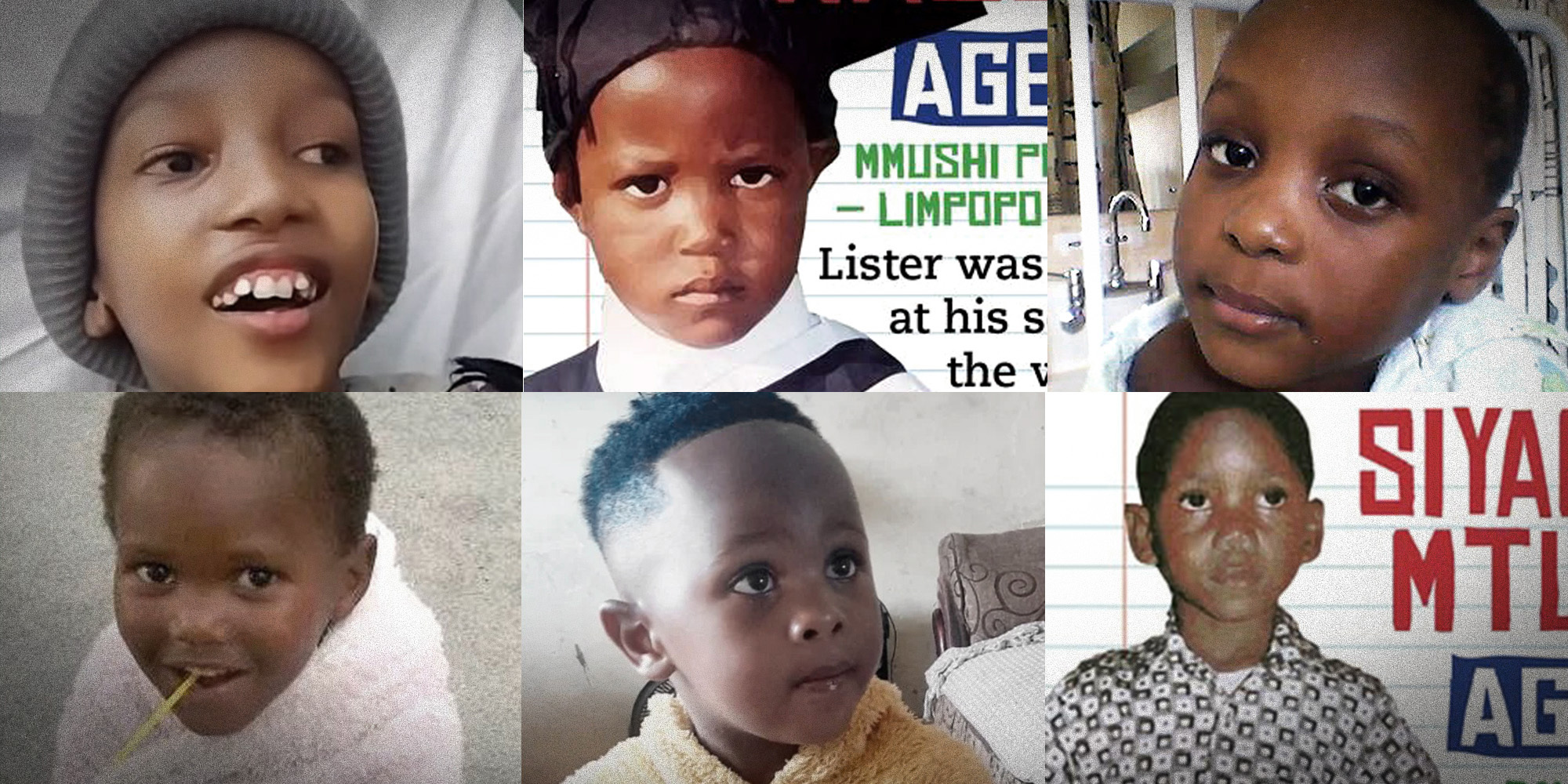 Unecebo Mboteni.
(Photo: Supplied)
Unecebo Mboteni.
(Photo: Supplied)